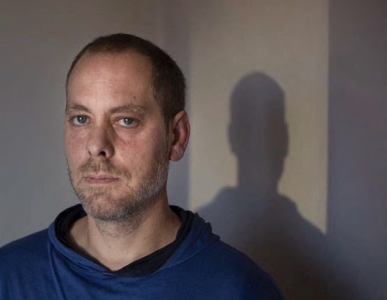
Interview Leon Edu - Best Maghreb Photo Project 2024

Hello Leon, you are the « Best Maghreb Photo Project » 2024. For this, you won $300. What do you think about being selected as a winner among hundreds of other photographers ?
I think it is important that a work of this nature has been awarded. The participation of the people in the photographs gives it added value, they are part of the photographic process and are the protagonists of the same. The fact that the jury has highlighted this work gives a more powerful meaning to the process that was carried out with the people.
Can you tell us about your background and how you became a photographer ?
I started being a photographer very late, I hadn't picked up a camera until I was 29. At first I took up photography as a political tool, trying to photograph social injustices. In this process I have been changing my way of taking photographs. I come from a photojournalistic background, but I believe that new narratives that help reach a more general public have more and more impact. Raising awareness from another point of view with these new narratives allows us to reach other types of people who can be influenced and sensitized with our photographs.

What about the « When everyone leaves. Moroccan earthquake. » series, how did you build this project and what do you plan to do in the future ?
I think it is a project that has been in place for a long time. The first impulse when there is an earthquake is to go and see the destruction and the dead and photograph the disaster. This project was carried out a month after the earthquake, when all the media had already left and the affected people were still waiting for help. In some way, seeing themselves photographed in the ruins of their houses and being able to draw how they imagined their houses rebuilt was not only a photographic work but also helped these people psychologically, drawing the idea of being heard. They are a fundamental part of this project and it is also important to highlight that apart from being a photographic project, it became a healing tool for these people. The journalistic character, which it has, grew with this other use of photography, as a way for people to heal their wounds.In the future, the project will involve the participation of Spanish schools, where students will learn about the reality and write and draw about other Polaroid photographs that I take. The idea is to return and give them those photos with messages of support.
As a winner of our photo competition you will join the jury of our photo competition for the next edition, what advice can you give to photographers who want to apply for next year ?
My advice is to send your work to give visibility. And to exercise all possible creativity, photojournalism is essential, but so are these new narratives, to not stop innovating and to think about how to reach people in a different way. I encourage you to have all these works seen by the jury and to have the power of narrative and to show your projects.

Edu León (Madrid, 1977) (@eduleonphoto) is a Spanish photographer who has settled in Latin America for 11 years. His work focuses on social conflicts, human rights activism and migrations. In recent years, he has devoted himself to photographing the exodus of Venezuelans to southern Latin American countries, within the framework of the project “Migrar es tocar tierra” (Migration is touching earth). It was designed as a traveling exhibition, but during the pandemic it became a virtual exhibition. Before that, he developed, together with the photographer Olmo Calvo, a project named “Invisible borders”, that shows the situation at the European borders and the identity checks in Spain. He has also used photography as a tool for social and identity transformation with youth and indigenous communities. He has been published in media such as El País, Univisión Noticias, The Guardian, Time, Newsweek, Vice News y New York Times. He has also collaborated with international organizations such as the Red Cross, International Amnesty, Oxfam.

